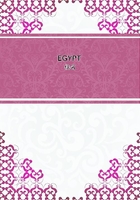
第61章
Leaving Assouan--as soon as we have passed the last house--we come at once upon the desert. And now the night is falling, a cold February night, under a strange, copper-coloured sky.
Incontestably it is the desert, with its chaos of granite and sand, its warm tones and reddish colour. But there are telegraph poles and the lines of a railroad, which traverse it in company, and disappear in the empty horizon. And then too how paradoxical and ridiculous it seems to be travelling here on full security and in a carriage! (The most commonplace of hackney-carriages, which I hired by the hour on the quay of Assouan.) A desert indeed which preserves still its aspects of reality, but has become domesticated and tamed for the use of the tourists and the ladies.
First, immense cemeteries surrounded by sand at the beginning of these quasi-solitudes. Such old cemeteries of every epoch of history. The thousand little cupolas of saints of Islam are crumbling side by side with the Christian obelisks of the first centuries; and, underneath, the Pharaonic hypogea. In the twilight, all these ruins of the dead, all the scattered blocks of granite are mingled in mournful groupings, outlined in fantastic silhouette against the pale copper of the sky; broken arches, tilted domes, and rocks that rise up like tall phantoms.
Farther on, when we have left behind this region of tombs, the granites alone litter the expanse of sand, granites to which the usury of centuries has given the form of huge round beasts. In places they have been thrown one upon the other and make great heaps of monsters.
Elsewhere they lie alone among the sands, as if lost in the midst of the infinitude of some dead sea-shore. The rails and the telegraph poles have disappeared; by the magic of twilight everything is become grand again, beneath one of those evening skies of Egypt which, in winter, resemble cold cupolas of metal. And now it is that you feel yourself verily on the threshold of the profound desolations of Arabia, from which no barrier, after all separates you. Were it not for the lack of verisimilitude in the carriage that has brought us hither, we should be able now to take this desert quite seriously--for in fact it has no limits.
After travelling for about three-quarters of an hour, we see in the distance a number of lights, which have already been kindled in the growing darkness. They seem too bright to be those of an Arab encampment. And our driver turning round and pointing to them says:
"Chelal!"
Chelal--that is the name of the Arab village, on the riverside, where you take the boat for Philae. To our disgust the place is lighted by electricity. It consists of a station, a factory with a long smoking chimney, and a dozen or so suspicious-looking taverns, reeking of alcohol, without which, it would seem, our European civilisation could not implant itself in a new country.
And here we embark for Philae. A number of boats are ready: for the tourists allured by many advertisements flock hither every winter in docile herds. All the boats, without a single exception, are profusely decorated with little English flags, as if for some regatta on the Thames. There is no escape therefore from this beflagging of a foreign holiday--and we set out with a homesick song of Nubia, which the boatmen sing to the cadence of the oars.
The copper-coloured heaven remains so impregnated with cold light that we still see clearly. We are amid magnificent tragic scenery on a lake surrounded by a kind of fearful amphitheatre outlined on all sides by the mountains of the desert. It was at the bottom of this granite circus that the Nile used to flow, forming fresh islets, on which the eternal verdure of the palm-trees contrasted with the high desolate mountains that surrounded it like a wall. To-day, on account of the barrage established by the English, the water has steadily risen, like a tide that will never recede; and this lake, almost a little sea, replaces the meanderings of the river and has succeeded in submerging the sacred islets. The sanctuary of Isis--which was enthroned for thousands of years on the summit of a hill, crowded with temples and colonnades and statues--still half emerges; but it is alone and will soon go the way of the others, There it is, beyond, like a great rock, at this hour in which the night begins to obscure everything.
Nowhere but in Upper Egypt have the winter nights these transparencies of absolute emptiness nor these sinister colourings. As the light gradually fails, the sky passes from copper to bronze, but remains always metallic. The zenith becomes brownish like a brazen shield, while the setting sun alone retains its yellow colour, growing slowly paler till it is almost of the whiteness of latten; and, above, the mountains of the desert edge their sharp outlines with a tint of burnt sienna. To-night a freezing wind blows fiercely in our faces. To the continual chant of the rowers we pass slowly over the artificial lake, which is upheld as it were in the air by the English masonry, invisible now in the distance, but divined nevertheless and revolting.
A sacrilegious lake one might call it, since it hides beneath its troubled waters ruins beyond all price; temples of the gods of Egypt, churches of the first centuries of Christianity, obelisks, inscriptions and emblems. It is over these things that we now pass, while the spray splashes in our faces, and the foam of a thousand angry little billows.
We draw near to what was once the holy isle. In places dying palm-trees, whose long trunks are to-day under water, still show their moistened plumes and give an appearance of inundation, almost of cataclysm.